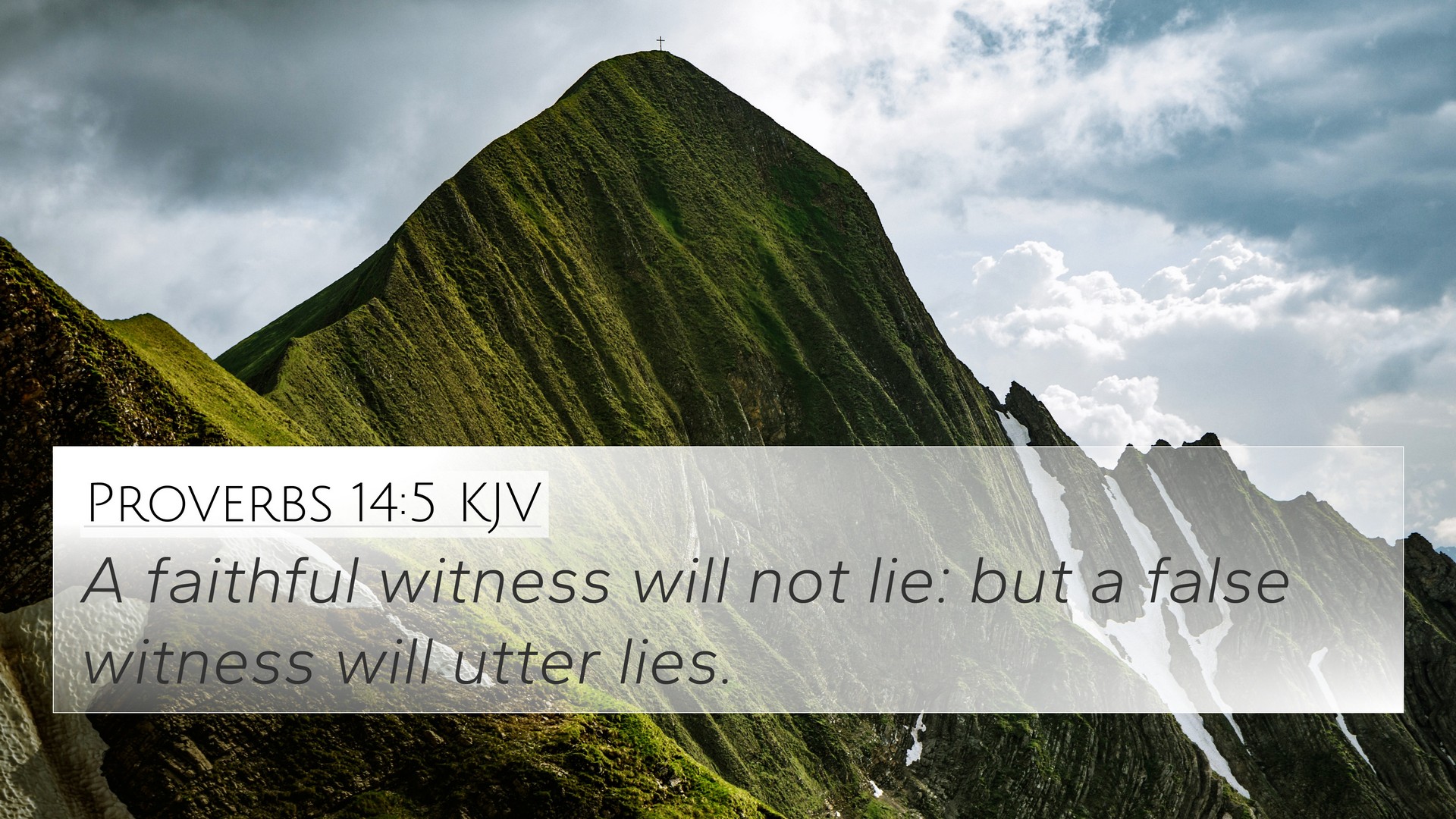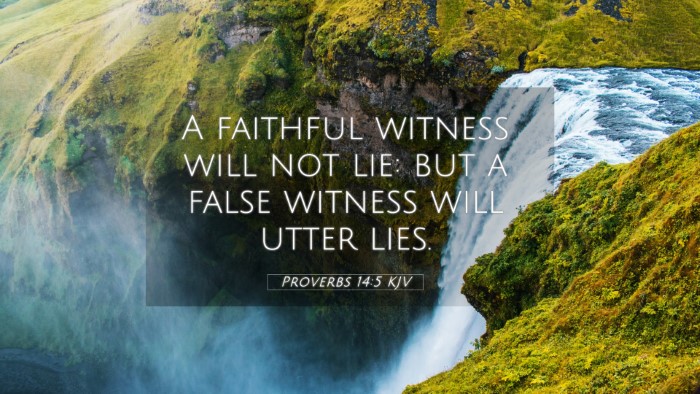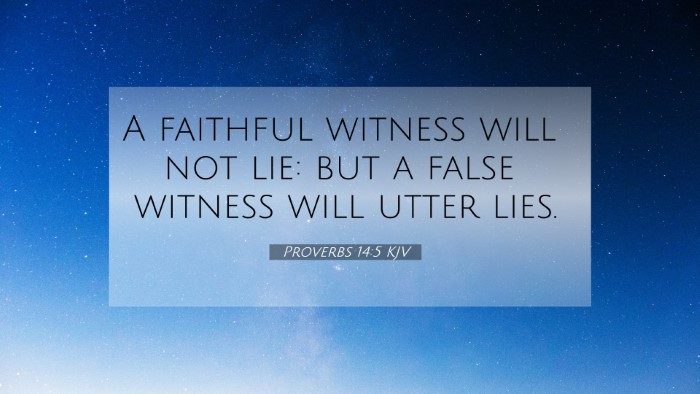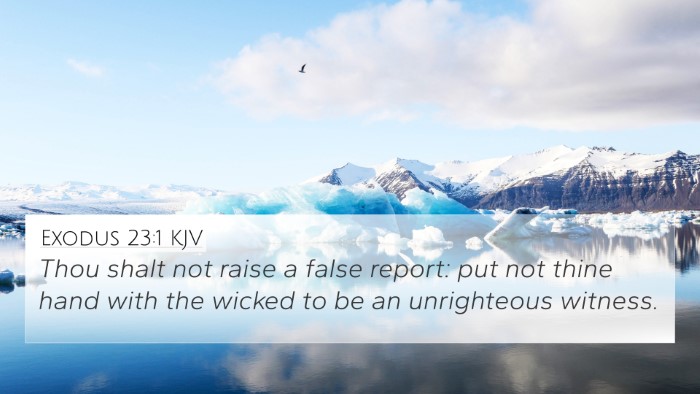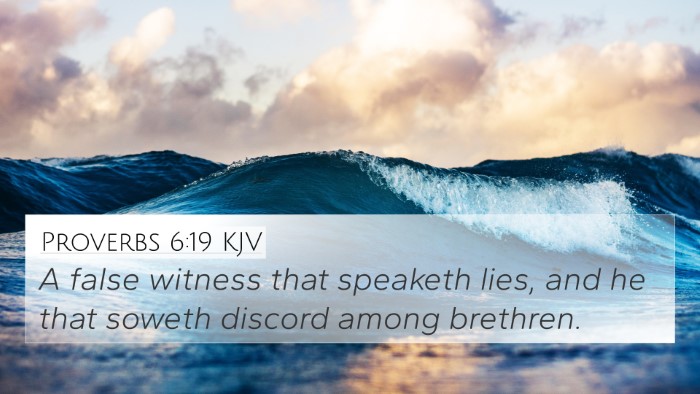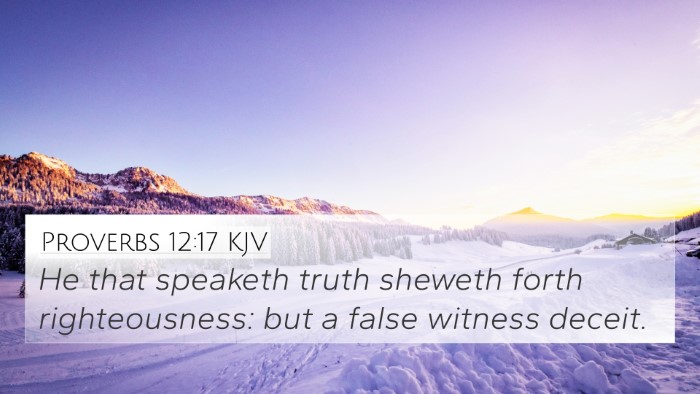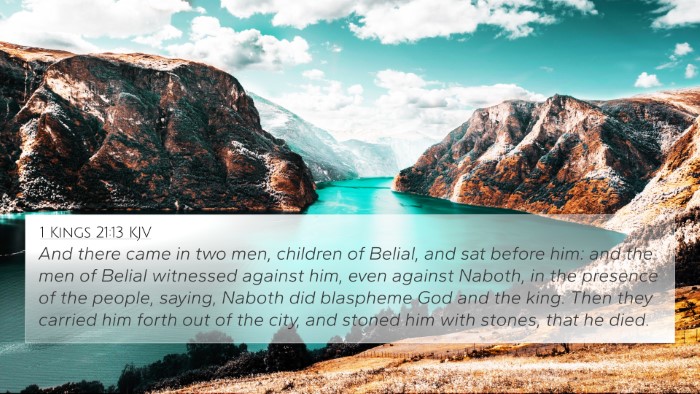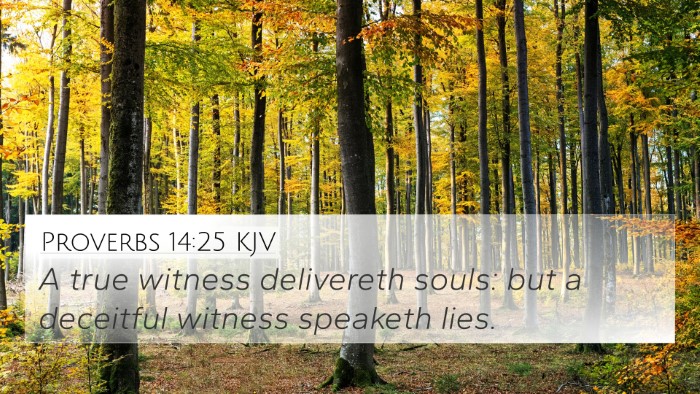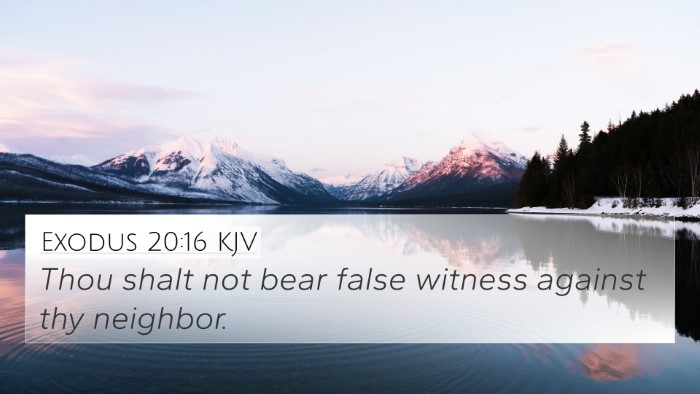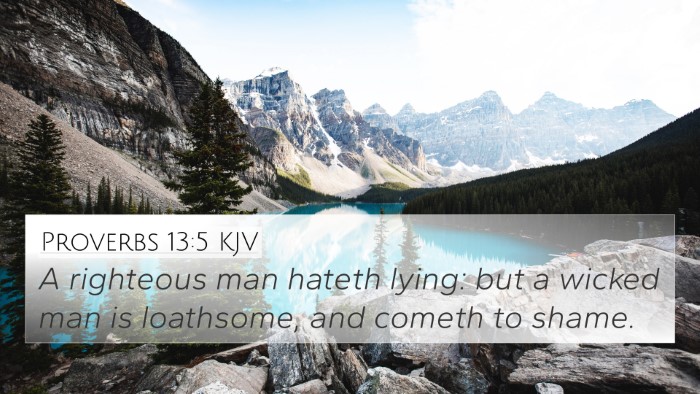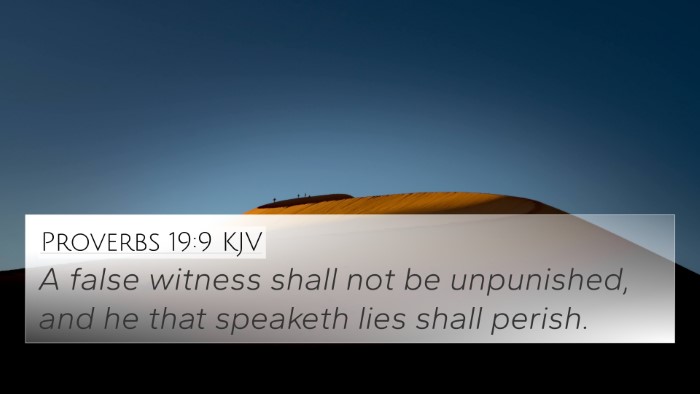Understanding Proverbs 14:5
Proverbs 14:5 states, "A faithful witness will not lie: but a false witness will utter lies." This verse contrasts the characteristics of a faithful witness with a false witness. It emphasizes the moral integrity of truth-telling versus the destructive nature of deceit.
Meaning and Insights
This verse provides profound insights when delving into themes of honesty, integrity, and accountability:
- Faithful Witness: A faithful witness is someone who speaks the truth and can be relied upon for accurate testimony. According to Matthew Henry, being a faithful witness aligns with the character of God, who embodies truth.
- False Witness: In stark contrast, a false witness denotes deceit and betrayal. Albert Barnes notes that lies can lead to much harm; therefore, the consequences of harboring falsehoods are far-reaching.
- Divine Judgment: Based on biblical principles, a faithful witness reflects God's righteousness, while a false witness will eventually face divine judgment, as highlighted by Adam Clarke.
Thematic Connections
Exploring this verse reveals rich thematic connections throughout the Bible:
- Truth vs. Lies: The dichotomy between truth and falsehood is a recurring theme in scripture. For instance, John 8:44 speaks of the devil as the father of lies, reinforcing the dangers associated with deceit.
- Integrity and Character: Proverbs 12:22 states, "Lying lips are abomination to the LORD: but they that deal truly are his delight." This emphasizes the importance of integrity in one's character.
- Consequences of Deceit: In Galatians 6:7, the principle of sowing and reaping is underscored, indicating that lies will ultimately lead to negative consequences.
Cross-References
Proverbs 14:5 is related to several other scriptures that help elucidate its meaning:
- Exodus 20:16 - "Thou shalt not bear false witness against thy neighbour."
- Psalm 101:7 - "He that worketh deceit shall not dwell within my house."
- Proverbs 6:16-19 - "These six things doth the LORD hate: [...] a lying tongue."
- Matthew 5:37 - "But let your communication be, Yea, yea; Nay, nay: for whatsoever is more than these cometh of evil."
- John 8:32 - "And ye shall know the truth, and the truth shall make you free."
- 1 Peter 3:10 - "For he that will love life, and see good days, let him refrain his tongue from evil."
- Revelation 21:8 - "[...] all liars shall have their part in the lake which burneth with fire and brimstone."
Interpretative Analysis
To thoroughly grasp Proverbs 14:5, one can engage in comparative Bible verse analysis:
Matthew Henry suggests using tools for Bible cross-referencing, as they provide deeper insight into the significance of being a truthful witness in the context of God’s expectations. By connecting Proverbs 14:5 with 1 John 1:6, where we are told that if we say we have fellowship with Him and walk in darkness, we lie and do not practice the truth, we can gain a holistic view of the biblical narrative surrounding truthfulness.
Conclusion
Understanding Proverbs 14:5 through scriptural cross-referencing unveils a tapestry of truth that is vital for Christian living. By studying its connections, one can appreciate the importance of honoring truth in all aspects of life, aligning with God’s ultimate desire for His followers.
Reflection
Consider the integrity of your words. How does aligning your testimony with truth shape your relationships and your witness for Christ? Reflect on the verses connected to Proverbs 14:5 and let them guide you in the pursuit of honesty and truthfulness.
